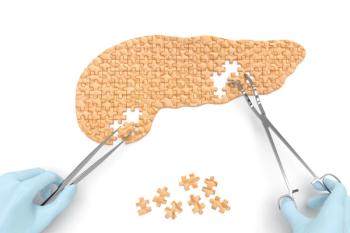
Study: Anti-inflammation Drug Combination May Help Patients With Pancreatic and Liver Cancers
A new drug candidate demonstrated the potential to control inflammation for cancer patients in findings that were recently announced in Proceedings of the National Academy of Sciences.
A drug candidate has shown the ability to help control the body’s inflammation response to chemotherapy treatments. This would help patients with pancreatic and liver cancers.
Bruce Hammock, PhD, professor at the University of California in the UC Davis Department of Entomology and Nematology and Comprehensive Cancer Center is the study co-author. Hammock and a Harvard Medical School research team announced the findings in Proceedings of the National Academy of Sciences (PNAS) this week.
Research was conducted through rodent models of liver and pancreatic cancer. The results showed that a combination of 2 drugs would reduce inflammation after chemotherapy. This is important because inflammation can trigger metastasis or the spread of cancer throughout the body.
The drug candidate works by blocking the enzyme, soluble epoxide hydrolase, or sEH, and the EP4 prostaglandin receptor. When the sEH and EP4 eicosanoid pathways are blocked the compounds work together to prevent pancreas and liver cancer metastasis by stimulating the clearance of debris from prior cancer treatment, according to Panigrahy, a physician-researcher with the Israel Deaconess Medical Center, Harvard School of Medicine.1
The EP4 antagonist INV-1120 is currently in a phase 1 clinical trial in the United States. In the preclinical animal model, INV-1120, demonstrated synergy with anti-PD-1, the sEH inhibitor, in fighting cancers such as pancreatic and liver cancers.
The sEH and EP4 proteins play an important role in inflammation. Hammock found the sEH pathway while researching metamorphosis in butterflies. The sEH pathway is important in both pain and inflammation. He then created the UC Davis-based EicOsis Human Health LLC to bring the sEH inhibitor to human clinical trials.
“Controlling the body’s inflammatory response to chemotherapy will likely be important to prevent metastasis,” Hammock said. “It hit me that what we really need to do is not so much block cytokines as to move upstream to modulate them and resolve them rather just block inflammation.”
Combining drugs to block the sEH and EP4 pathways is a new approach to lessening inflammation and preventing the cytokine storm caused by chemotherapy and even tumor resection.1
Reference
- Anti-inflammation drug combination may help pancreatic and liver cancer patients. News Release. EurekAlert! Ucdavisnews. https://www.eurekalert.org/news-releases/929859. Accessed September 29, 2021.
Newsletter
Pharmacy practice is always changing. Stay ahead of the curve with the Drug Topics newsletter and get the latest drug information, industry trends, and patient care tips.























